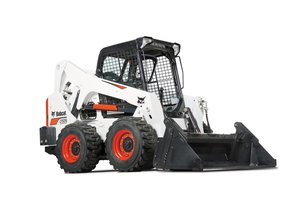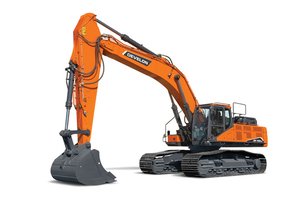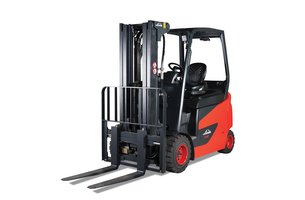Electric Forklift Maintenance, Operator Training, Batteries, and other FAQs
January 18, 2022
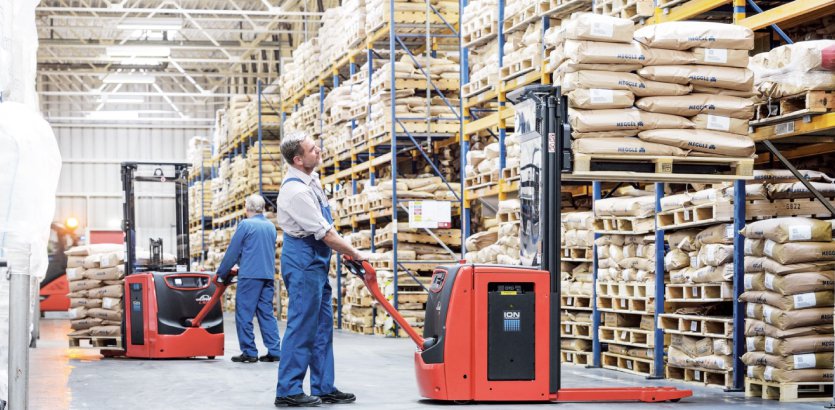
What is the difference between electric Forklifts and internal combustion Forklifts?
Internal Combustion lift trucks were the standard go-to option for most applications in the past. These forklifts use an internal combustion (IC) engine which is like the ones used in the automobiles. An IC engine could use any one of the following fossil fuels to power the forklift:
Gasoline, Liquified Petroleum Gas (LPG) also known as propane, Compressed Natural Gas (CNG), Diesel.
IC forklifts still form a major chunk of all the forklifts sold in the market because of certain advantages like lower upfront cost, mature technology, and ruggedness which helps them tackle tough outdoor jobs.
Electric forklifts use batteries to power the entire system instead of an engine. They use motors to convert power to energy as compared to IC forklifts which use engine to convert fossil fuel to energy. As a result, Electric forklifts have much fewer moving parts and require less maintenance. They are less noisy, and much cleaner as compared to popular IC forklift options like propane forklifts. Popularity Electric forklifts is rising exponentially, and it is being touted as the future of forklift industry.
What are Pros and Cons of Electric Forklift Vs Propane Forklifts?
Electric Forklift Pros
- Fewer moving parts means lesser maintenance requirements.
- Rechargeable electric batteries and lower maintenance costs lead to lower total cost of ownership (TCO) compared to Internal combustion lift trucks.
- Clean and environmentally sustainable option.
- Operator friendly as these forklifts are much quieter, do not carry hazardous fuels and do not produce harmful gases.
- Electric forklift safety is higher and be confidently used even for food and health related applications.
Electric Forklift Cons
- Electric forklift purchase price is higher than the propane powered forklifts.
- While electric forklift battery technology has made significant progress, multi-shift operations may require owning multiple batteries per forklift and having operators swap them between the shifts.
- Need for special charging infrastructure for first time adoption
- Electric forklifts have limited options for outdoor applications and tough jobsites like construction.
Propane Forklifts Pros
- Liquified petroleum or Propane forklifts have lower upfront cost as compared to electric forklift with similar specifications.
- It is more convenient to change propane cylinders as compared to changing forklift batteries
- Easier to operate multishift operations since there is no requirement like battery charging or swapping.
Propane Forklifts Cons
- Higher maintenance requirements and higher total cost of ownership (TCO) compared to Electric forklifts.
- Nosier, less clean, and less safe for the operators as compared to electric forklifts.
- Owing to the use of fossil fuels, these are not recommended for food and medical related applications.
- Fluctuating fuel prices can affect operating costs significantly.
What are the Applications where electric Forklifts can be used?
Electric forklifts are greener and safer as compared to internal combustion alternatives like diesel forklifts which makes them ideal for indoor use. Depending on the type of electric forklift, they can be used in a variety of applications:
- Electric rider forklifts are great for warehousing, food and beverage, and manufacturing applications.
- Electric narrow-aisle forklifts, electric order pickers, electric turret trucks are excellent choice for high density storage warehousing applications and can help you significantly improve your bottom line.
- Electric pallet trucks are suited for a variety of applications including light manufacturing, grocery and delivery trucks, manufacturing, and warehousing.
- Outdoor use of electric forklifts is on the rise as there is an increased focus on making electric forklifts sturdier and equipped for facing tougher conditions.
Can Electric forklifts be used outdoors?
Yes, there are many models of electric forklifts which can be used outdoors. This is especially true for sit-down rider type electric forklifts equipped with pneumatic tires and heavy lifting capacities of up to 20,000 lb.
Before driving your electric forklift outdoors, you need to make sure that it is built for outside use. You can confirm it by checking the IP code commonly found on your forklift’s rating plate. The first digit after “IP” indicates the forklift’s protection from heavy objects, while the second digit denotes the equipment’s ability to withstand water. The solid protection rating ranges from 0 to 6 and liquid protection rating ranges from 0 to 8. These numbers combine into a two-digit number which represents the total rating. For instance, IP00 would mean no protection against dirt or water at all.
A rating of IP54 would equate to good amount of protection from dirt and water and would be generally considered suitable for tough sites with debris and liquid exposure.
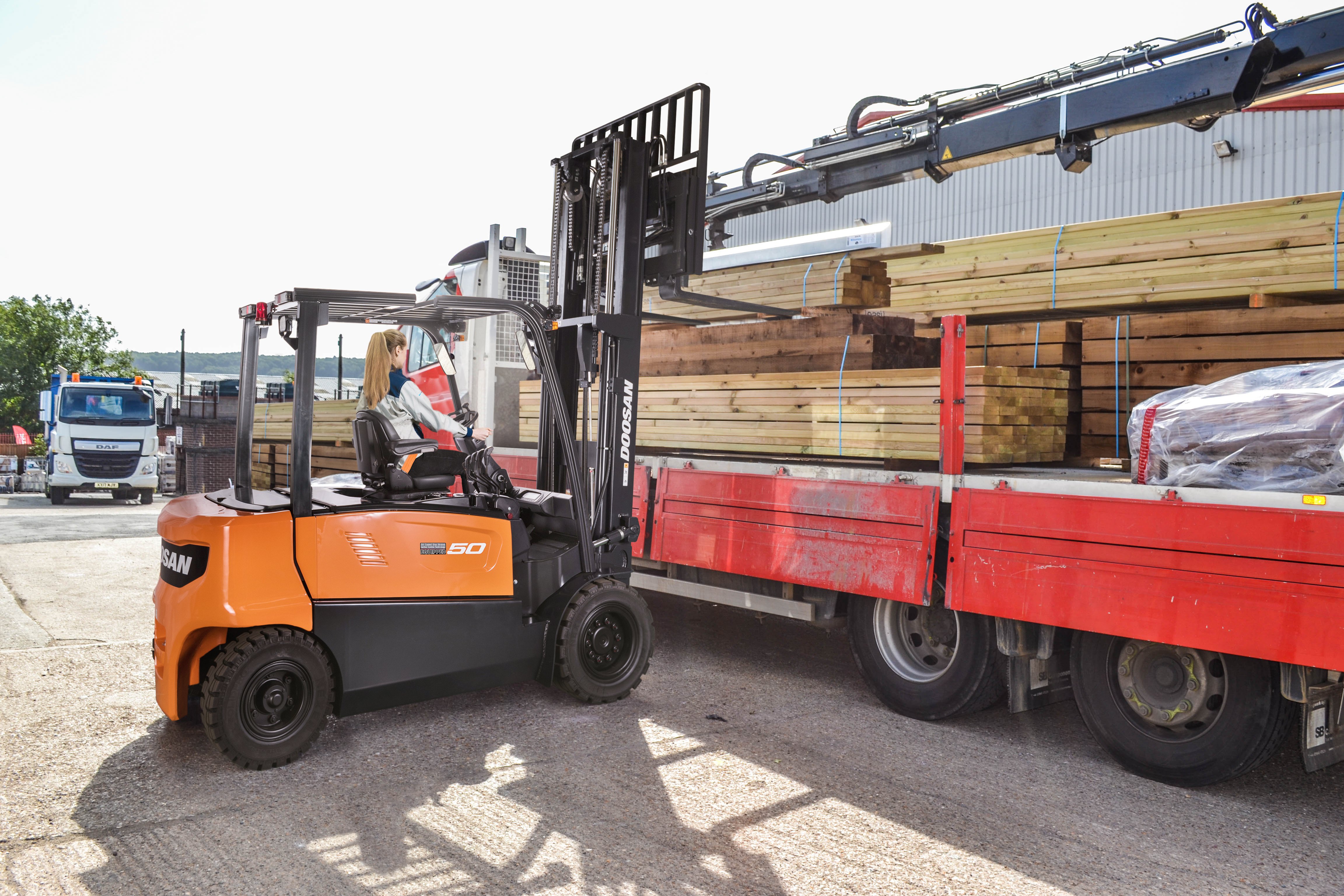
What are the Requirements for Electric Forklift Maintenance?
One of the biggest advantages offered by Electric forklifts is their ease of maintenance and lower costs associated with it. That said, it is always advisable to pay good attention to maintenance needs of your electric forklift to avoid breakdowns and keep operating it at optimum level.
- Electric forklift battery maintenance
Battery is inarguable one of the most important parts of an electric forklift. Right from purchasing the right technology and size to maintaining the battery, you should pay proper attention to it to get the most out of your forklift. Read here about maintenance of different types of forklift batteries.
- Other components that need maintenance are- motor cables, tires, brakes, hydraulics, and attachments.
What is an Electric Forklift Price?
The price of an electric forklift depends on several factors like forklift make and model, specifications, features, type of equipment, tire selection, and type of battery. The upfront cost of an electric forklift is higher than a fossil fuel forklift but over all lifetime cost is usually lower.
If you are looking to lower your upfront investment cost while purchasing an electric forklift, then it is worthwhile exploring used equipment options. While going for a used forklift, it is important to be thorough in your evaluation to avoid expensive repairs and safety issues in future.
What are the top brands of Electric Forklifts?
Electric forklifts have gained popularity over the past decade and are being offered by many brands. Williams Machinery offers electric forklifts from premium brands including Linde, Clark, Doosan, Konecranes, Drexel, and Bendi. Depending on your needs, our electric forklift experts will be able to help you select the right make and model.
View forklifts form:
- Doosan
- Clark
What are the Operator training and certification requirements for Electric Forklifts?
To operate a forklift in BC, workers do not need to be certified but must first be trained to CSA standards. Workers must be trained to CSA Standard B335-15, Industrial Lift Truck Operator Training, and have passed the test before they can operate a lift truck (forklift).
From Stand Up Narrow Aisle (SUNA) Forklift Training Program to Electric Pallet Jack Course, Williams Machinery offers many theory and practical learning courses to match your interests and work-site needs. Speak with us to know more about forklift certification requirements and explore our forklift courses here. We also offer multiple online courses which includes forklift safety training, forklift inspection training, forklift maintenance classes.
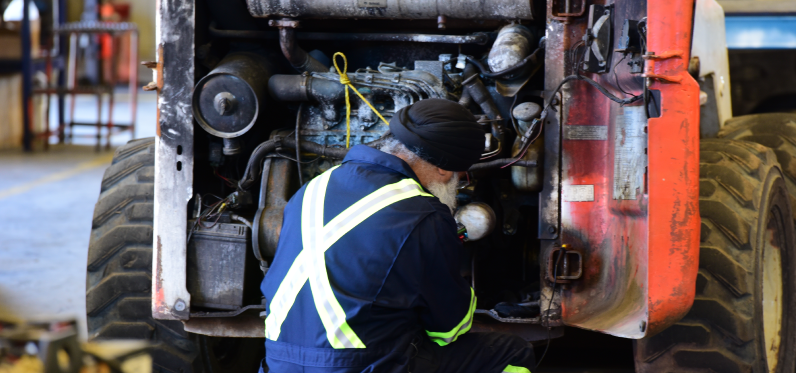
How to choose an Electric Forklift Battery?
Selecting the right electric forklift battery is one of the most important decisions as it can have direct impact on forklift performance, business productivity, and bottom line. Two critical decisions that you need to make while selecting a forklift battery are:
- Choosing between lead acid battery and lithium ion battery technologies
- Selecting the right size of battery
You can refer to our electric forklift battery selection guide for a detailed comparison of lead acid vs lithium ion batteries as well as tips on battery sizing.
Following table summarizes the comparison between lead-acid and lithium-ion batteries for your quick reference.
| No. of shifts with one battery | 1 | Up-to 3 |
|---|---|---|
| Charging time | 8 hours |
2-3 hours |
| Opportunity charging | Possible, however battery life reduces drastically | Charging for as low as 5-10 minutes whenever possible |
| Safety & Health Risks | High | Low |
| Watering the battery | Yes | N/A |
| Maintenance Cost | High | Low |
| Battery LifeSpan | ~1500 cycles | 2000 - 3000 cycles |
| Electrical Infrastructure |
Use existing |
May need Upgrade |
| Replacement cost | High | Low |
| Energy Efficiency | Low | High |
| Electricity Cost | High | lower Save up to 30% because of higher energy efficiency |
| Upfront Cost | Low | High |
| Total Cost of Ownership | High | Low |
| Environment Friendly | No | Yes |
What is an Electric Forklift Battery watering system?
Lead acid batteries need to be watered to keep them functioning. Lithium ion batteries do not need watering.
Lead acid batteries consist of lead plates immersed in an electrolyte made of sulphuric acid and water. During the charging process, lead acid batteries loose water so the water needs to be topped up regularly to compensate for the loss. Overwatering and underwatering can both cause damages to the battery so make sure to follow proper watering guidelines.
What is an Electric Forklift Battery Life?
The Number of years a forklift battery will last depends on various factors like the type of battery, how well it has been maintained and how many shifts you operate. A well maintained battery will last be following number of charging cycles:
-Lead-acid batteries generally last about 1,500 cycles.
-Lithium-ion batteries generally last between 2,000 and 3,000 cycles.
How do I charge an Electric forklift?
Lead acid batteries need to be removed from the forklift placed on the designated charging rack for every charge. Owing to the weight of the battery, special lifting equipment and trained personnel may be required to ensure safety. For 2 or 3 shift operations, you must have back-up lead acid batteries to operate the forklift, as the charging process takes about 8 hours. You must ensure a safe storage environment for lead acid batteries- one which is away from hot air ducts and other heat sources, does not get direct sunlight, and is maintained at room temperature or lower.
Lithium ion batteries are easier to charge as they do not need to be removed from the forklift. You can simply drive the forklift to the charging point and charge it for a few minutes when you have time. Charging a lithium ion battery to 100% takes about 2-3 hours but the advantage with li-ion batteries is that you can charge them intermittently for a few minutes at a time.
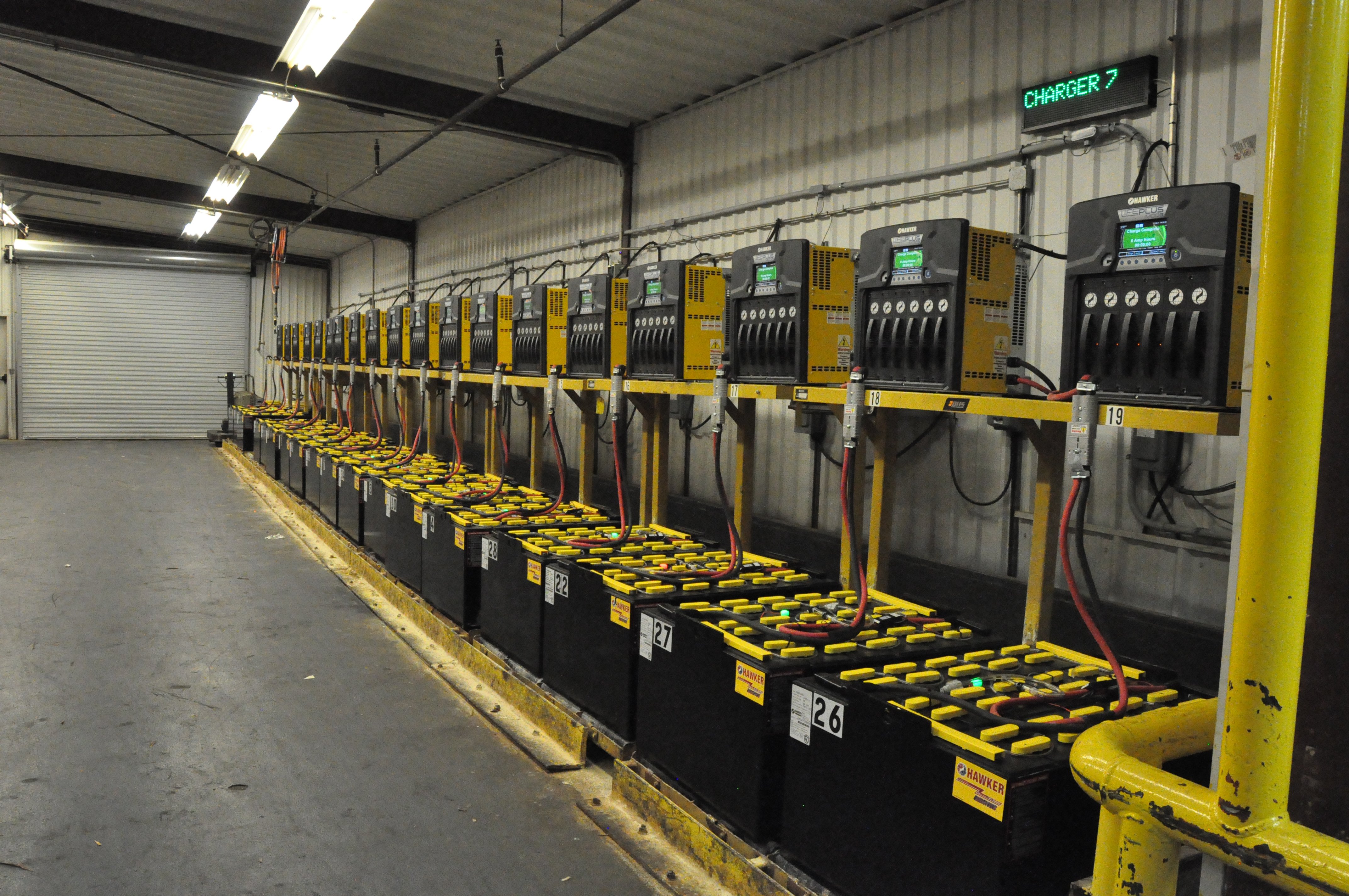
What are Different electric Forklift Types?
Some of the key types of electric forklifts are:
Electric Sit-down rider forklift
These are the standard forklifts in which the operator remains seated while lifting and moving products.
Electric Narrow-aisle forklift
As the name suggests, these forklifts can navigate narrow aisles in indoor applications and are generally stand-up rider type of forklifts. A common type of narrow aisle forklift is reach truck which is often used in warehousing applications to reach tall racks.
Electric Pallet Jacks
Simplest form of forklifts, electric pallet jacks basically consist of two forks used to pick and move pallets around. The operator walks beside the pallet jack.
Electric Turret Trucks
Also known as very narrow-aisle forklifts, the turret trucks can work in aisles as narrow as 56″ (1.4M). The very narrow aisle forklifts are specifically designed for order picking and handling processes in high rack warehouses.
Electric Order Pickers
Order pickers are unique forklifts which not only raise the material but also raise the operator to the level of the rack from which they need to pick a product. They are a popular piece of equipment in the warehousing industry.

